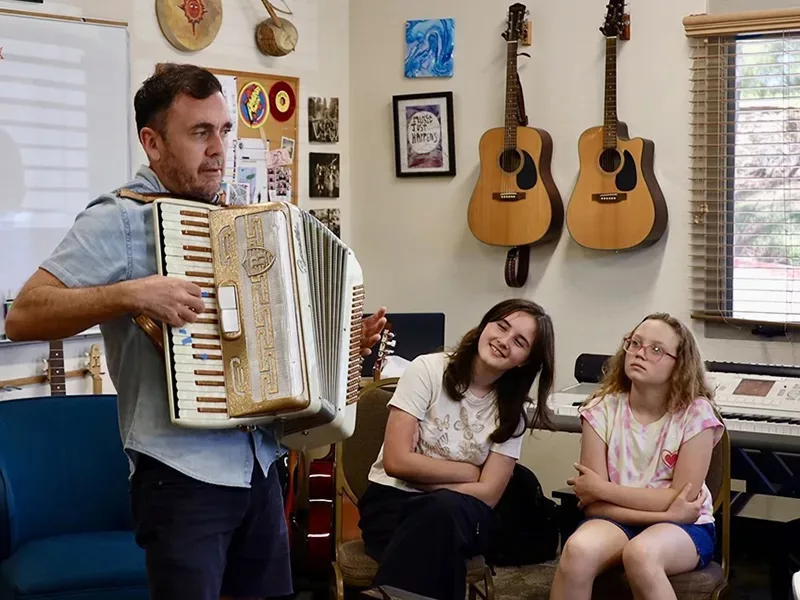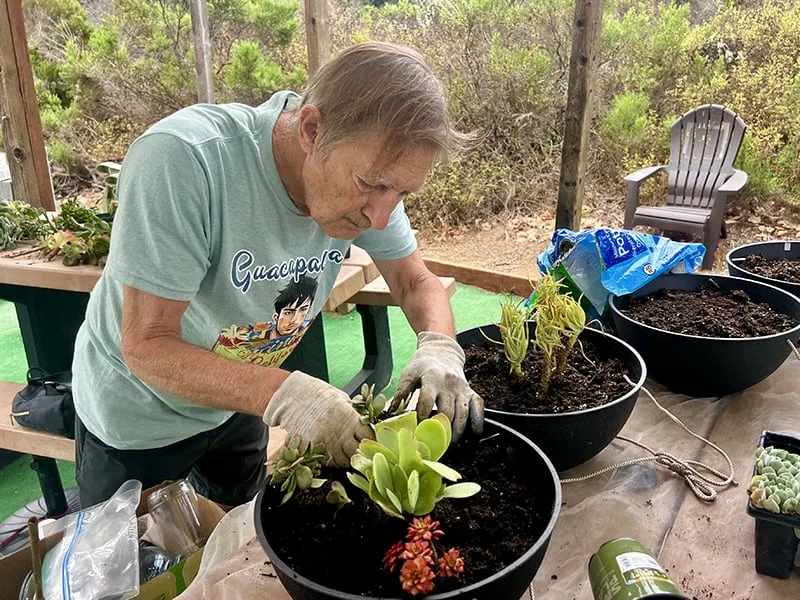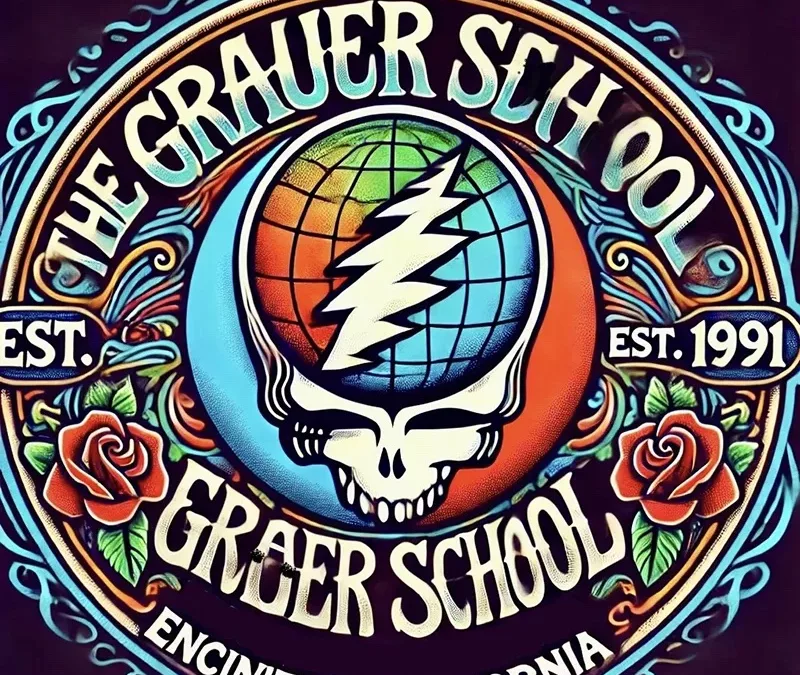My whole life, I’ve appreciated music and developing my musical tastes. Over time, some music became so resonant and so beautiful to me that it felt like it had always existed, like a part of nature, like it was a part of my life, and this is what it felt like to me when I heard Uncle John’s Band, a track on the Workingman’s Dead album. It came out while I was in college. I rarely had a class that meant as much, and now this song from 1970 encompasses both ends of the arc of a long teaching career.
The song comes out of the folk tradition, American history, and literature— so you can appreciate it even if you’re not a fan of the Grateful Dead. Amidst the psychedelic chaos of an era that was as conflictual as today seems, here was something concrete, for the “workingman.” It went beyond pop culture, at least in my life. Ultimately, the song has stood on par with the historic artworks that have inspired me personally and professionally, including Van Gogh’s Starry Night and Mozart’s Serenade No. 10 in B-flat major, K. 361. The Ferrari 250 GTO. Frost’s The Road Not Taken. Shakespeare’s Romeo and Juliet. Hemingway’s The Sun Also Rises. Likewise, Picasso’s Guernica, Ridley Scott’s Thelma and Louise, and Beckett’s Waiting for Godot have each permanently impacted my consciousness, passions, and, alternatively, sensibilities and maybe yours.
Yes, this is an education column, so where are we going here? When we experience great art, we engage with profound insights and emotions—not just thoughts or feelings, but the remarkable connection and merging of both; insights and emotions that deepen our grasp of the world, inspire creativity and new perspectives, and can stimulate a lifelong love of learning and teaching.
Once the deeper sense of this one great song/art piece by The Dead got into my subconscious, it would subtly influence my major life decisions and transformations, including creating The Grauer School and doing my part to advance a kind of education that was more liberating and less controlling.
We’re not alone on this trip. The lyrics and improvisational nature of Grateful Dead music have led generations of fans to explore themes of personal freedom, spirituality, and consciousness expansion. There have been college courses and academic studies focused on their music, cultural impact, and business model. Come on along for the exploration for a minute…

Let me take you through the song, perhaps the way a teacher might. Let’s see how Uncle John’s Band can be applied to The Grauer School’s philosophy and to expeditionary/naturalist, relationship-based, Socratic education.
The Opening Verse: “Well, the first days are the hardest days, don’t you worry anymore…”
I find that this lyric covers the challenges that students might face when they first enter a new learning environment. The transition to a new phase in life, like secondary school or to any new school, can be difficult, particularly when you pick courageously, like a small, creative school maybe a little out of the mainstream—or when you set out on your first expedition with your classmates and teachers. The educational philosophy of mentoring or nurturing each student individually, offering support, is meant to help ease these initial challenges. Students feel safe and supported as they set out. It can take a little while, but don’t you worry anymore.
The Chorus: “Come hear Uncle John’s Band by the riverside, Got some things to talk about, here beside the rising tide…”
Many are looking for a place where students and teachers are engaging in meaningful dialogue and sharing ideas. To me, this chorus is the open invitation to join a community like that. The song invites listeners to gather by the riverside, and the naturalist school invests years in creating natural, green spaces where we can engage not only with curriculum but with each other, and, paramount, with the natural world.
The Bridge: “It’s the same story the crow told me; it’s the only one he knows. Like the morning sun you come and like the wind you go…”
Let’s go deep here. Crows are often seen in literature and mythology as messengers or bearers of the ancient wisdom, like the teachers we tend to need the most to ground us in times of change. These lyrics could reflect the transient nature of life and learning. Our teens are changing and growing fast. Your time at school is not isolated, though; it is part of a larger journey. An expeditionary/experiential education prepares students for the unpredictability of life reflected in this line.
Instrumental Jam:
I once asked a room of at least 200 secondary school parents, ‘Who among you knew your future in high school, picked that same major, and landed that job right after college?’ I recall maybe 2 or 3 raising their hands. Like a jam, life is improv!
The instrumental break in Uncle John’s Band is a great example of the Grateful Dead’s signature improvisational style. Likewise, it reflects the approach of many smaller, more expeditionary schools: encouraging spontaneity, creativity, personal expression. The deeper learning doesn’t follow a strict formula or the overly standardized curriculum. In and out of great classes or faculty meetings, students and teachers can be as fluid and exploratory as a jam session.
Verse: “Think this through with me, let me know your mind… What I want to know is, are you kind?”
I love this line! These lyrics emphasize the importance of collaboration, kindness and understanding, core values at any great, small school. Every teacher is encouraging students to think critically and express their thoughts while being mindful of others. If you find yourself following pessimism and blame, I hope you can find a way to change the soundtrack. I know it can be tough. But the great school or community has an atmosphere of mutual respect and collaboration where we keep coming back to optimism and gratitude.

I also understand that too many of us feel unheard today—not just our youth feeling alone, but our entire country feeling divided and searching, just as it was during the Vietnam era when Uncle John’s Band came out. We’ve been here before. People forgotten or left behind. Or broken. Or put down. I want to hear you. We can stay positive and good-hearted and still have a voice—we need your voice! It might not matter if it’s the Dead. Try U2 or Bob Marley, or the Beatles. Bruce Springsteen. Toby Keith. They all celebrate individual freedom and invite you in with their music. But finish this column first…
Final Chorus: “Come hear Uncle John’s Band playing to the tide, Come with me or go alone, he’s come to take his children home…”
I hear this as a metaphor for the culmination of the educational journey at a great secondary school: “Come with me or go alone.” The schools we need mentor students into independence—when they are ready. As they graduate and set out on their next chapter (whether that’s college, a career, or heading out on the road in a van), if we have been real “teachers,” our students will know they have lifelong connections—and that they carry the school’s shared values and lessons with them through life.
There are other lyrics I could bring up: “Their motto is don’t tread on me” is laced with an overtone of struggle and of overcoming injustice—one of the greatest things on the teen mind. The great school ultimately is a place of healing for them. For the history-minded, there also seems to be a poetic hint of being freed from historical bondage or slavery, though this is impressionistic—the cannonballs, the sometimes-ominous crow, buck dancing, the riverside.
I hope you are inspired by the lyrics and music. Maybe this extended song metaphor could be too informal, easy to misunderstand, or too abstract for your personal preferences. So, if you want to make your ideal school out to be another song, the one you heard in college, where we seem to develop much of our musical taste, your own positive inspiration is a wonderful thing. But the whole of it is that a great faculty or leadership team could easily be Uncle John’s Band, playing to the tide, presiding over school as a naturalist, liberating, guiding, empowering presence. Historically, we have always needed that, and I have surely felt that way about my faculty, who are the kindest people I could ever partner and create with.
This song has touched something in my subconscious as I have listened to it through the years, gradually embedding itself into my thoughts and emotions—as you are about to see for yourself.
In the end, meaning and inspiration are not ‘things’; they are what we all create out of the abstract. All of us, conscious or not, are internalizing the deep connections we somehow sense, as they shape our worldview and actions. These become intuitions in our subconscious. Accessing that subconscious and connecting it to the conscious mind so we can act on it is one of the greatest educational purposes I know. This is attunement, and Jerry Garcia, maybe Uncle John, could not only achieve it on his guitar and with his voice, but he could enable many of us to have moments of it for ourselves and with those around us.
In all these ways, over time, this is how a song naturally can become an allegory for important educational philosophy and even for some of the best practices at The Grauer School, or perhaps, for you and the school you love: one that values community, creativity, kindness, freedom, and the amazing changes that go on through the secondary school journey.
Ready? Now forget everything else and take a joyful moment. You deserve it! Be late to class or work. Click on the image above to start or finish your day with this 50-year commemoration from the Dead Covers Project, and think about what you might love most about being in a school community. Or find the original.
Turn it up.
Join the Small Schools Movement!
Would you like your organization or small learning community showcased in our member spotlight? If you are not yet a member of the Small Schools Coalition, we welcome you to become a friend free of charge.
If you are already a member, contact us to discuss how we can give you the complimentary platform to show the entire world what makes your small school special!


Recent Comments